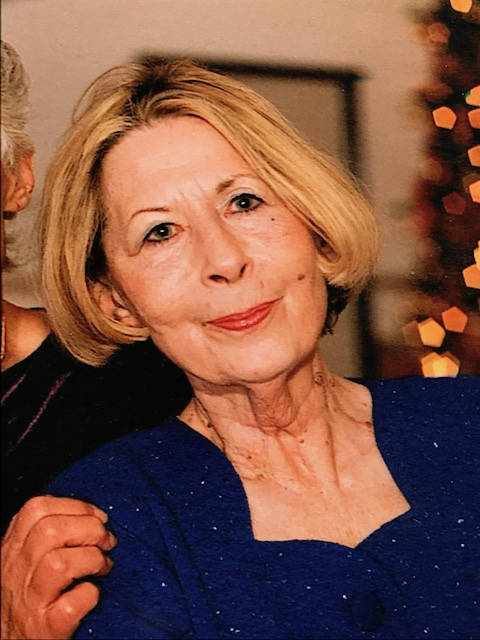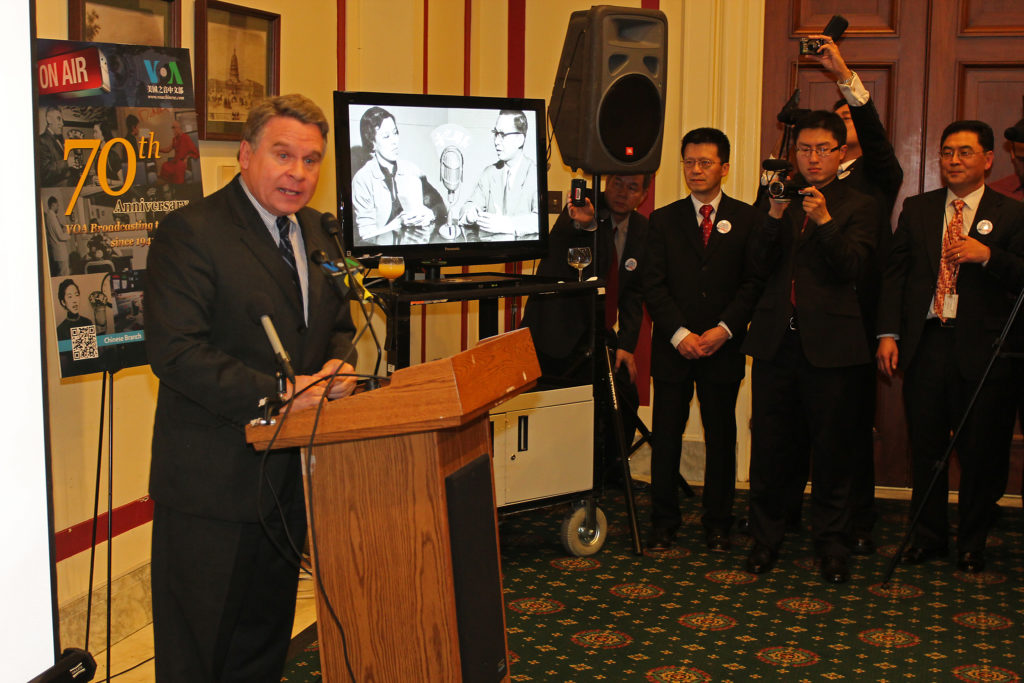BBG Watch Guest Commentary
By Huchen Zhang
Valentine’s Day (February 14), 2011 was the darkest day in the history of the Voice of America (VOA) China Branch. It was on that day that employees of the branch heard from VOA senior management that direct over-the-air radio and TV broadcasts to China would be eliminated on the orders of the Broadcasting Board of Governors (BBG). About 65% of the work force were to be laid off. China Branch employees dubbed the elimination proposal “Valentine’s Day Massacre”.
It was during those darkest hours that Marie Ciliberti came to our rescue. Like a bright star, she guided us through the hard fought struggle to save direct VOA radio and TV program delivery to China. She worked tirelessly with us, always providing us with insightful and strategic guidance. She advised us on whom to contact in Congress and whose support to enlist from every corner in Washington. Under her brilliant guidance, we petitioned the Congress, where BBG’s proposal was rejected. Committees in both chambers passed resolutions stipulating that radio and TV broadcasting to China must be maintained, and any proposed changes to Mandarin and Cantonese programming must be reported to Congress.
On December 6, 2011, VOA China Branch held a reception in the Gold Room in the Rayburn Building on Capitol Hill to celebrate the 70th anniversary of United States broadcasting to China. U.S. Representatives, including Dana Rohrabacher, Ileana Ros-Lehtinen, Chris Smith and David Rivera, attended the party and spoke highly of VOA China Branch’s achievements.
Marie was an honored guest, but she sat quietly in the back, savoring the glorious moment. To her, it was yet another victory in many struggles with agency bureaucrats who knew nothing about the importance of US international broadcasting and had cut language services one after another. On her way back home, she fell and broke one of her arms. It symbolized all the sacrifices that she had made to safeguard VOA broadcasting even in her retirement.
After five VOA Mandarin journalists were put on administrative leave in the aftermath of the Guo Wengui interview in May 2017, Marie was enraged. To her, it was a case of the management caving-in to the Chinese government and scapegoating the front-line journalists for the debacle they had created.
Marie and I had long telephone conversations during which she told me about the many evils of communism she had seen and reported on during her long broadcasting career. She gave us a lot of encouragement and made us believe that justice would eventually prevail.
But now, she has left us before a final administrative decision is made on the fate of four of the five VOA Mandarin journalists. We have lost a dear friend and great teacher.
We will miss you terribly, Marie. Rest in peace. You will see beautiful flowers, and you will hear Chopin.
Huchen Zhang, senior editor, VOA Mandarin Service

